Psyllim is a plant that is known all over Europe, the Americas and Asia for its extremely valuable soluble fiber. Known as Indian white plantain. Psyllim root system is a well developed taproot and a few fibrous secondary roots. Its colors are white, small and numerous. The seeds are enclosed in capsules that open after ripening.
The use of fiber from Psyllim has a very long history, starting from the central and southeastern parts of Asia. In Chinese traditional medicine and medical practice in Indian Ayurveda with Psyllim fiber is ensured prevention of intestinal motility and suppress conditions such as constipation and gastrointestinal disorders.
Composition of Psyllim
The most valuable ingredient that is found in these plants are water-soluble fibers, which are built the walls of plant cells. When immersed in water, forming a thick gel. In addition to the soluble fiber, Psyllim contains significant parts insoluble fiber.
In contact with water in the gastrointestinal tract, indigestible carbohydrates get a glazed clay form that can be processed by the digestive enzymes and acids, nor be absorbed through cell membranes.
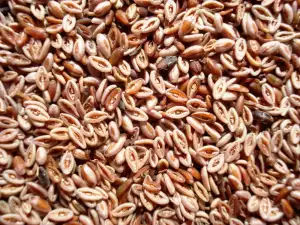
Selection and storage of Psyllim
Psyllim can be purchased on their own, but may be found in combination with other herbs, sports nutrition supplements, and other products for detoxification of the digestive tract and prevent problems such as gastritis, diarrhea, chronic constipation syndrome, Irritable bowels and others.
Benefits of Psyllim
Psyllim has many health benefits. First, it is a very good gastro-intestinal detoxifier.
The soluble fiber in it acts as mechanical and chemical waste accumulated on molecules across the surface of the small intestine. These fibers are associated with various waste substances and transport them outside the body, before harmful substances become toxic agents that are able to pass into the tissues of the intestinal cells, and hence the very circulation.
Psyllim creates a feeling of satiety. The large volume of the swollen fiber creates a false sense of satiety. This effect can be used in the preparation of various low-calorie and filling meals. It can be used in fiber-poor foods to increase their solubility, reduce their glycemic index and last but not least - to avoid eating excessive amounts of food.
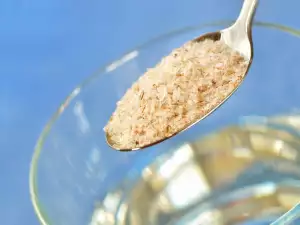
Psyllim is a regulator of intestinal peristalsis - helps accelerating or slowing them, is a great tool for diarrhea and constipation. In cases of diarrhea, Psyllim fiber absorbs excess water in the intestine, containing dried food and slows down its path. If you have constipation, gelling clay accumulates additional mass in the stool, rubbing the walls of the intestine and thereby stimulating peristalsis to accelerate the path of accumulating food mass.
Psyllim has a good carminative action. That's the best action that occurs in primarily in diets that include meals with high protein and mixed origin - eggs with dairy, dairy with meat, nuts in milk, beans with meat and others. It has a good action and over consumption of protein and low in fiber consumption.
It is believed that Psyllim has anti-cholesterol effect. Most likely it is due to the reduced blocking the absorption of consumed cholesterol and lowering the glycemic index of carbohydrates in the diet due to Psyllim fiber.
Daily doses of Psyllim
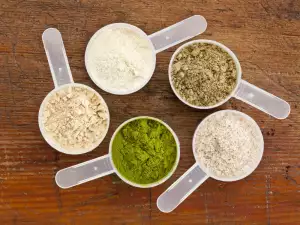
The usual daily dose of Psyllim seeds is 7.5 g or 5 g fiber dust. Taken once or twice daily with water, milk or fresh juice. Fiber is very important to take with a sufficient amount of fluid because of their tendency to swell rapidly. It is not advisable to take balls of fiber - fiber dust, which came into contact with the liquid. This makes them extremely difficult to swallow but that there is a danger of clogging the trachea.
Dangers of Psyllim
Consumption of fiber or whole seeds of Psyllim is considered absolutely safe. However, there are established cases of people who have developed an allergy to the fibers. Experts believe that by a similar autoimmune response are threatened mostly workers in factories in different industries where dust pollution is high.
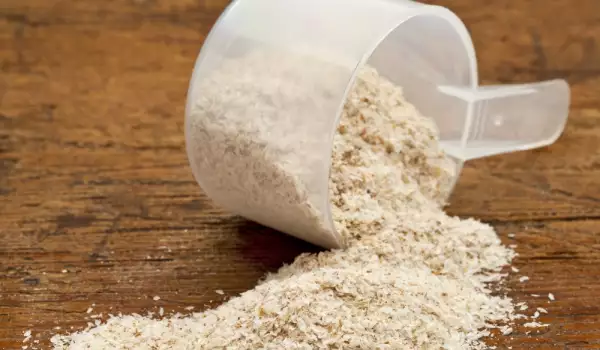

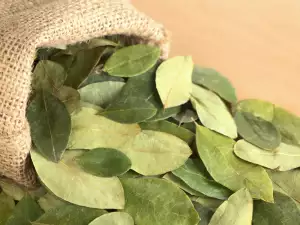




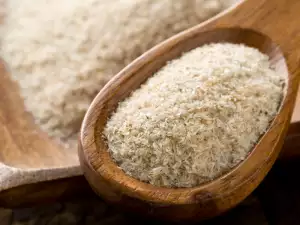
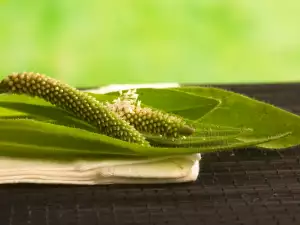

Comments